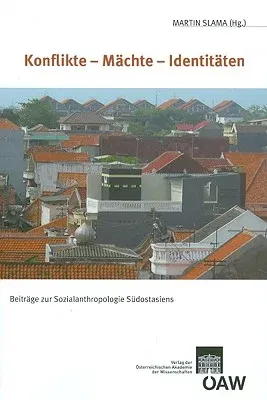Konflikte - Machte - Identitaten: Beitrage Zur Sozialanthropologie SudostasiensPaperback, 21 April 2009

Qty
1
Turbo
Ships in 2 - 3 days
Only 2 left
Free Delivery
Cash on Delivery
15 Days
Free Returns
Secure Checkout

Part of Series
Sitzungsberichte Der Phil.-Hist. Klasse
Part of Series
Sitzungsberichte Der Philosophisch-Historischen Klasse
Part of Series
Veroffentlichungen Zur Sozialanthropologie
Print Length
324 pages
Language
English
Publisher
Austrian Academy of Sciences Press
Date Published
21 Apr 2009
ISBN-10
3700166095
ISBN-13
9783700166092
Description
Product Details
Book Format:
Paperback
Country of Origin:
US
Date Published:
21 April 2009
Genre:
Southeast Asian
ISBN-10:
3700166095
ISBN-13:
9783700166092
Language:
English
Location:
Vienna
Pages:
324
Publisher: